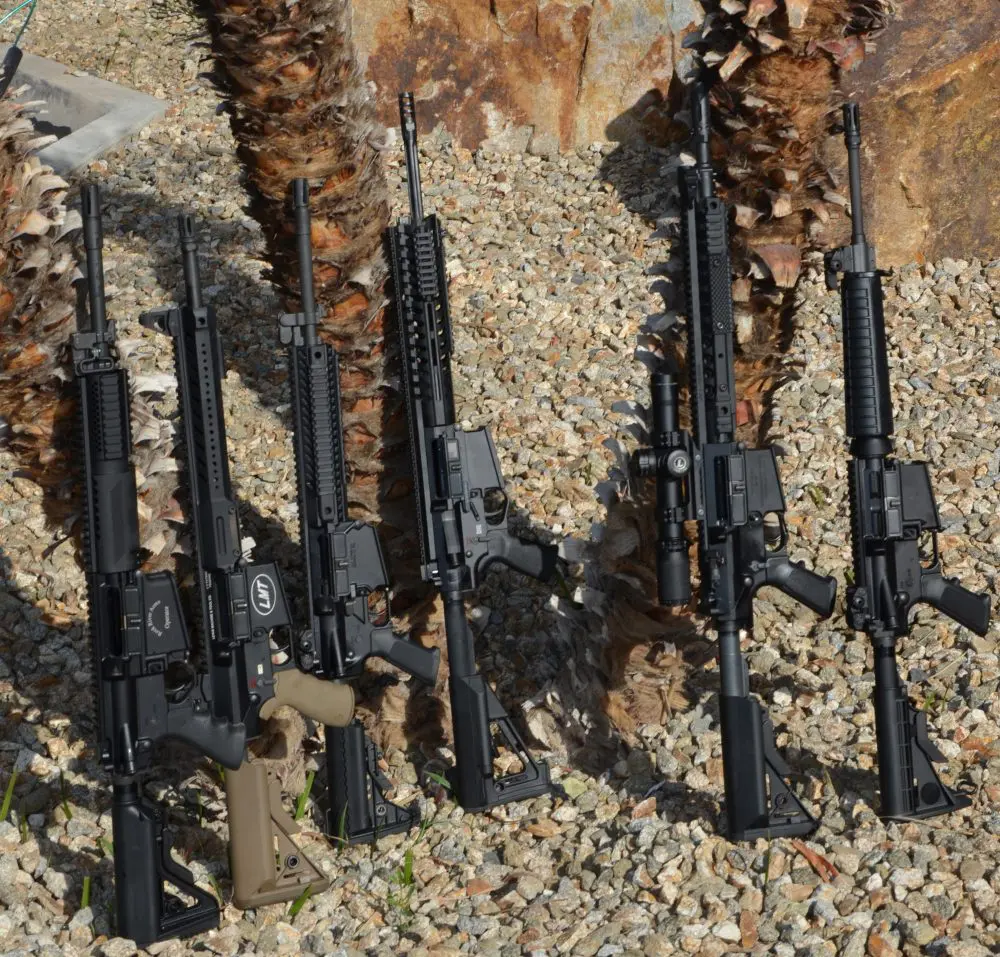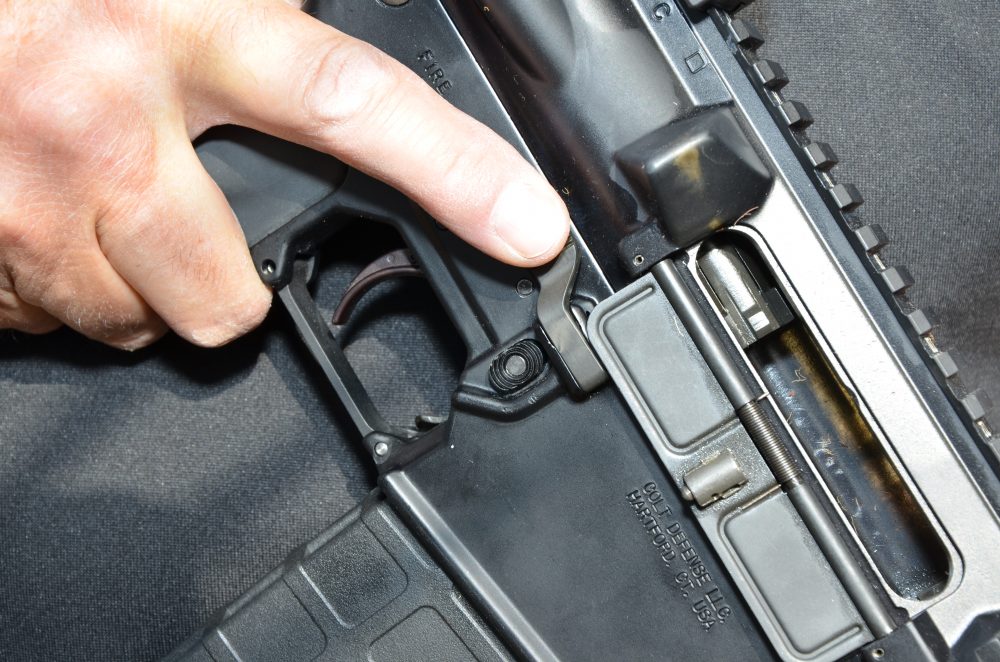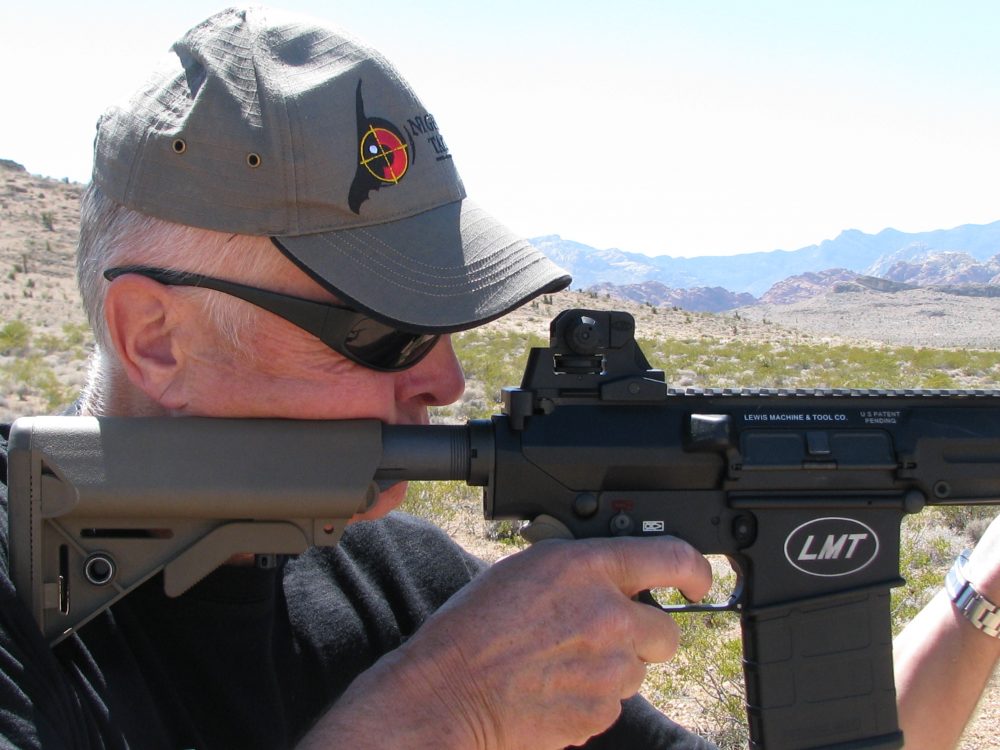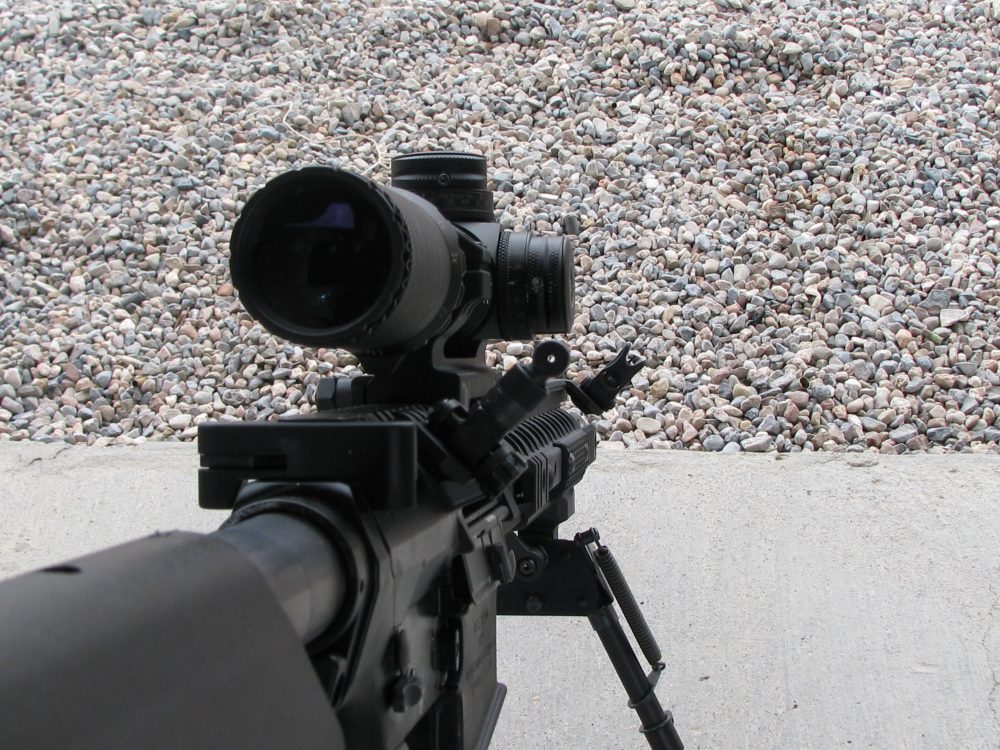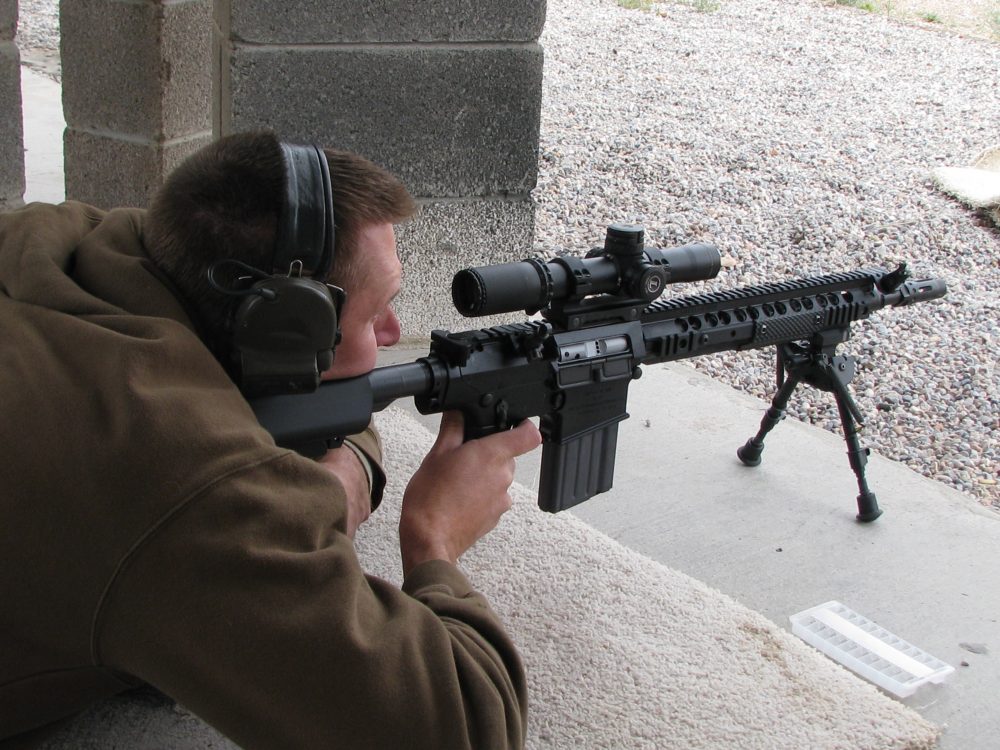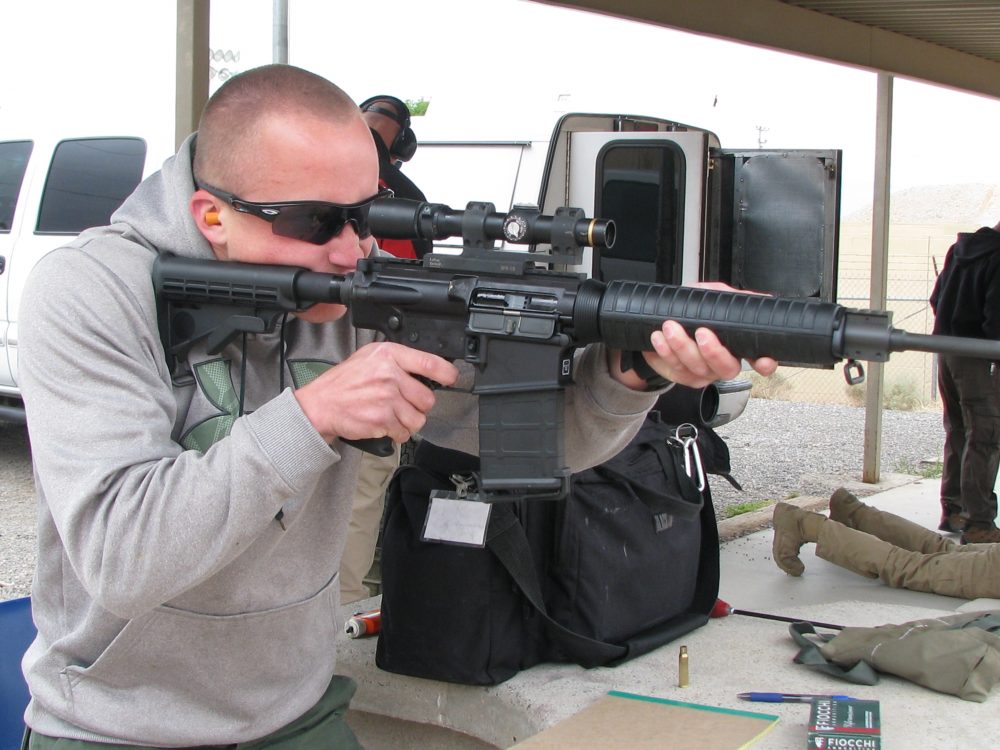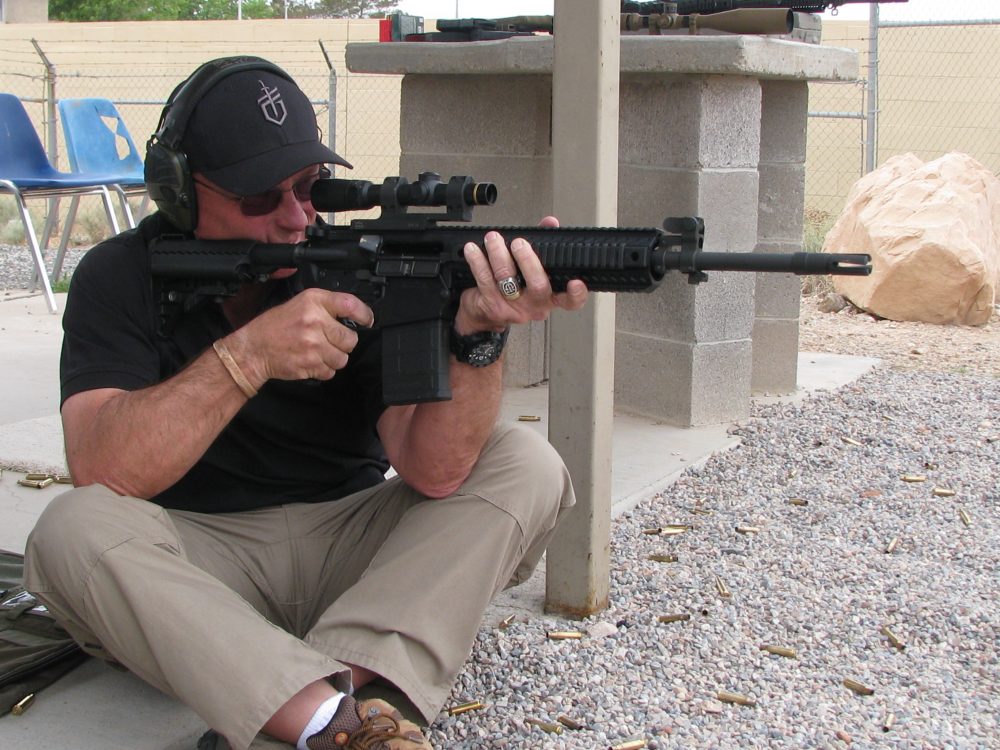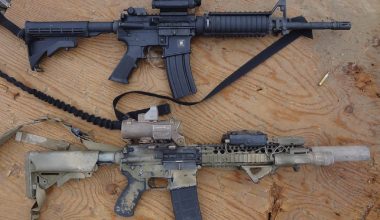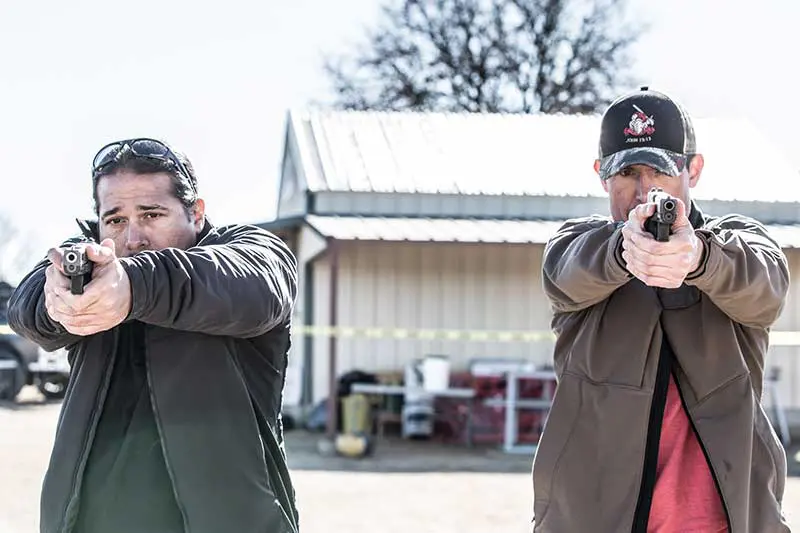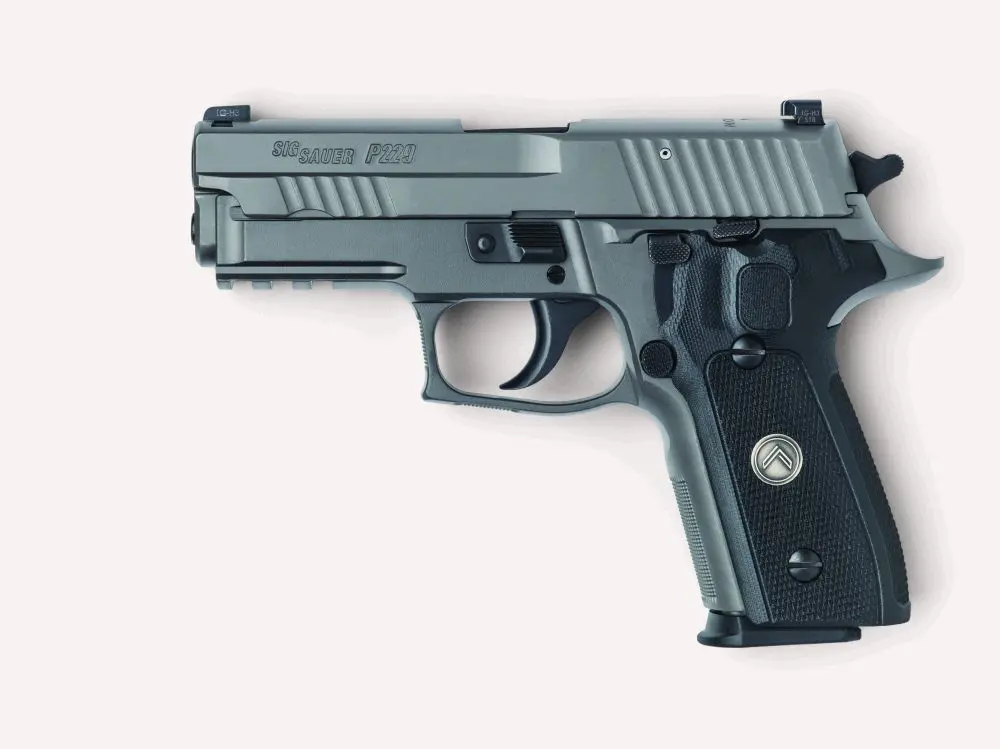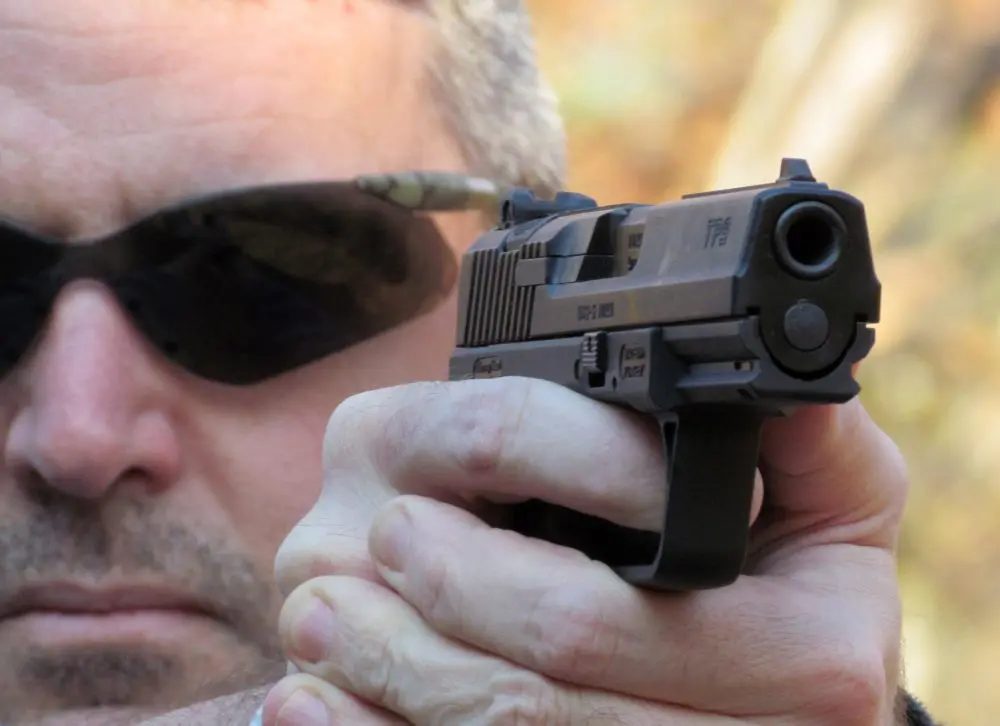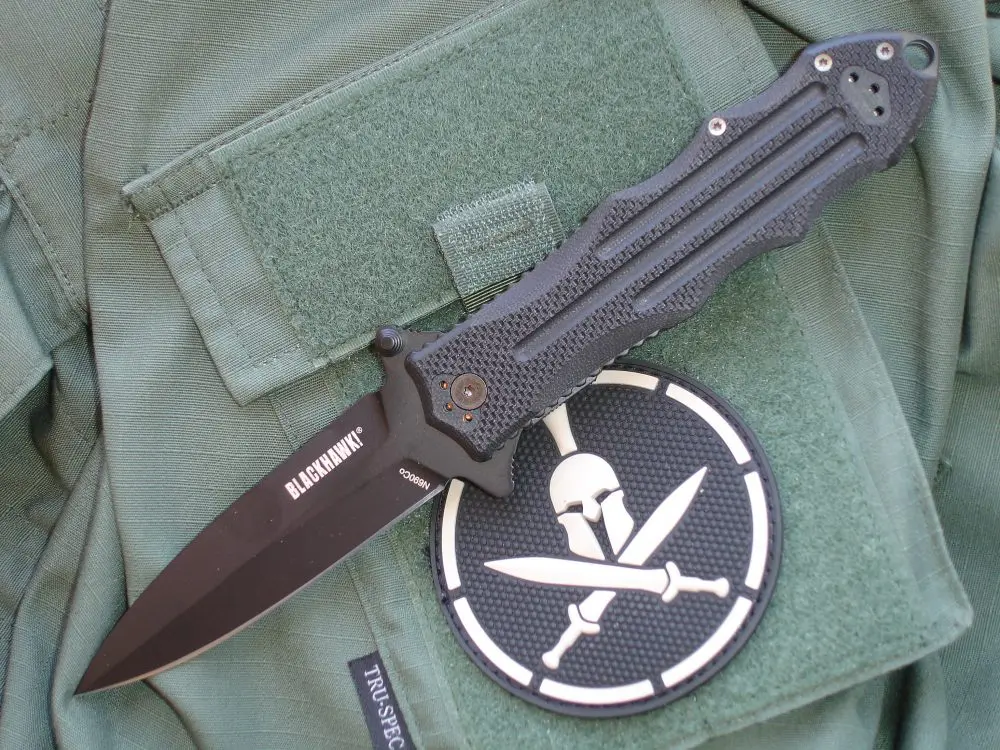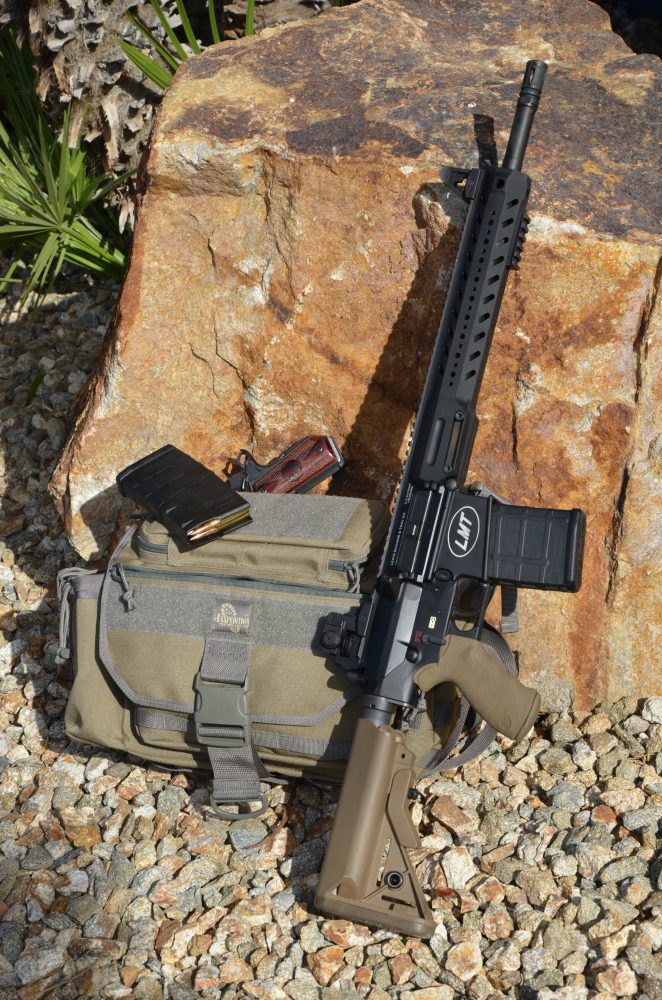
This year at SHOT, several S.W.A.T. readers approached me with questions about .308 ARs. They wanted to know what I thought about gun X or gun Y. Which was the most accurate, the most reliable, handled the best—the normal things gun guys think about.
I have to confess I had no idea. I have a DS Arms FAL and a LaRue OBR, but hadn’t paid much attention to the developments of the .308 AR platform over the last few years. I figured it was time to rectify that.
I contacted Colt, Smith & Wesson, LWRC, LMT, Rock River Arms, POF USA, ArmaLite, Knight’s Armament Company, and Black Rain Ordnance. S&W, Black Rain, and LWRC declined to participate, but the other companies provided samples for testing. I was looking for 16-inch carbines to use as a general rifle for survival or police work.
Any gun is just a tool, and different tools work better than others for different jobs. My LaRue Tactical OBR is a 20-inch fixed stock rifle with a Leupold 4.5X14 mil-dot scope. I bought this configuration with the mission of using it in a static position. I have an elevated position overlooking open, partially wooded terrain, with ranges to 500 yards. The OBR is extremely reliable, extremely accurate, but heavy—I wouldn’t want to hump it all day over rough terrain. If that were the job, I’d want something a little lighter and easier to handle.
The carbine might be lighter but less accurate, or really accurate but a little cumbersome to swing up on target. Also, with the cost of these guns over $3,000, it might be the only rifle you can afford, so you want something that’ll work for you.
(left to right) Rock River, LMT, Colt, POF-USA, KAC, ArmaLite.
Table of Contents
PUTTING THEM TO THE TEST
I didn’t have any preconceived ideas or preferences. I tried to be strictly objective, noting weight, accuracy, reliability, trigger pull weight—all things that could be impartially measured. The subjective part is how the gun handled, how “agile” it felt, portability, pointability and ergonomics.
I enlisted the help of some folks I know to pull this off. Brian Lake, the CEO of The Range 702, a Las Vegas machine gun rental range, loaned me a former 25th Infantry Army sniper, Gil Hayon. Gil helped me field strip, clean and lubricate each gun, as well as record the weights. He also shot all the guns.
Range 702 also ponied up 1,000 rounds of .308 ammunition: Fiocchi, PMC, and some Serbian (Yugoslavian) ball. Black Hills provided 168-grain Match, and I located a small quantity of Federal 165-grain Tactical. A couple of local police SWAT snipers, Karl Knowles and Chuck Collingwood, volunteered to help do some accuracy work.
To keep things even, I used two Leupold 1.5X5 scopes in LaRue mounts, moved from gun to gun. Those guns without BUIS were fitted with Troy Industries sights. Magpul PMAGs were used in those guns that accepted them.
Keeping in mind this was a sampling of only six rifles, what follows are the results, in order from our top to last picks.
Ambi bolt release on Colt 901.
LEWIS MACHINE & TOOL (LMT) LM308
Karl Lewis is one of the nicest guys I’ve met in this business, and he builds a really nice gun. Attention to detail was evident in the included PMAGs, sling and torque wrench.
The rifle has a monolithic rail for mounting optics, with a three-inch rail section on either side at the front. The bottom of the forend is smooth, slender and comfortable to the hand. The included BUIS are great if a scope isn’t used, but the rear sight gets in the way of scope use. The bolt appears to be nickel coated, with the bolt carrier hard chromed—I’m told this reduces friction for smooth operation. The clean, crisp 5.5-pound trigger and enhanced charging handle made it easy to run and to shoot. This gun comes in at Number One. Suggested retail price is $3,148.00.
LMT’s iron sights are rugged, fast, and accurate.
COLT 901 MODULAR CARBINE
This gun shows Colt quality throughout. It is unique in that it accepts both 7.62x51mm and 5.56x45mm upper receivers. A magazine well block attaches to the forward pin and drops into the mag well from above. A quick change of the buffer and buffer spring allows the lighter 5.56 round to run flawlessly in the 7.62 lower. The 5.56 upper sports a full Colt rail, fold-down front sight, and sadly, the goofy MATECH flip-up rear sight (a 600-meter small-aperture BUIS?).
The 7.62 upper has a monolithic rail, with full rails at 12, 3, 6, and 9 o’clock, making it a handful. I’d have appreciated less rail and a slimmer forend. It has a Vltor stock. The lower has an ambidextrous bolt stop and mag release, much appreciated by all the shooters. The trigger is a standard two-stage G.I. trigger, breaking at six pounds. One PMAG, a sling and manual are included. I wasn’t sure of the practicality of switching uppers, but you essentially get two guns for the price of one. In a long-term survival situation, if you wreck the 7.62 upper or can’t find .308, you can switch to the 5.56.
The Colt came in Number Two in overall “likeability,” losing the top spot by a slim margin. Suggested retail price is $2,509.00 without the 5.56mm upper (retail price for the 5.56 upper had not been set at press time).
KAC’s offset BUIS.
PATRIOT ORDNANCE FACTORY (POF USA) P308?
POF USA got a lot of flack when they started building a piston gun, doing away with the gas impingement system, but it appears that the bugs have been ironed out. The test gun weighs 8.7 pounds empty and 11.5 loaded, consistent with the other guns. The trigger is clean, no creep, and breaks at 5.5 pounds.
The forend has four-position rails, but only about six inches long on the bottom, allowing a slimmer forend for the forward grip. In our test, it was sub-MOA accurate, used PMAGs with no difficulty, and suffered only one failure to feed. POF USA works with Robar to NP3-coat critical parts of the gun, making a functional and attractive rifle. I’m not sold on the whole piston gun thing, but this one ran, shot and handled very well, bringing it to third overall. Suggested retail is $3,219.99.
SWAT sniper Karl Knowles behind KAC SR-25.
ARMALITE “A”
The AR was originally chambered in 7.62 and later switched to 5.56 to meet governmental needs. The company went through some changes over the years, but still builds a decent rifle. The sample rifle was a standard plain-Jane carbine—no frills, just a simple working gun.
The gun comes without any sights. The forend is slender and gives a nice grip. The buttstock is a standard four-position collapsible style. The 16-inch barrel is lightweight, with a standard G.I.-type flash hider. The trigger is a standard two-stage, breaking at just over six pounds. This gun is the lightest and handiest of the six evaluated.
ArmaLite makes “A” and “B” models. “A” takes most standard mags, and that’s what I tested. The gun comes with one PMAG. I really liked its weight, quick handling, portability and pointability. I tried a dozen different PMAGs and LaRue and KAC mags. All worked well.
I had two malfunctions with Serbian ball ammo. The soft brass ripped through when extracting. After it was broken in by shooting the PMC and Fiocchi, I ran more Serbian ammo through with no malfunctions. I’d make a few after-market changes, but this is a nice carry gun. It came in Number Four. Suggested retail is $1,571.00.
This officer liked weight and handling of ArmaLite.
KNIGHT’S ARMAMENT COMPANY (KAC) SR-25 ECC
KAC was able to send a slightly used SR-25 ECC that lacked a couple of the most recent upgrades. KAC builds the M-110 S.A.S.S., or Semi-Automatic Sniper System, currently in use by the U.S. Army.
In the early 1990s, KAC offered a civilian variant of the SR-25—one of the first reliable .308 ARs. I bought one then and it was very accurate, but the aluminum waffle magazines weren’t too sturdy. This has been corrected using KAC proprietary mags or Magpul PMAGs.
The test gun came equipped with a Leupold Horus-reticle scope, bipod, and BUIS mounted at a 45-degree angle on the right side. I didn’t remove the optics, so it weighed 13.5 pounds—the heaviest gun tested. As equipped, it was a little cumbersome to handle, bringing it to Number Five. This model comes with BUIS, SOPMOD stock, QDC-compatible flash hider, and ambi controls. Suggested retail is $5,743.75.
Retired Delta troop Chuck Collingwood wrings out Colt 901.
ROCK RIVER ARMS OPERATOR
The Rock River Arms Operator rifle is a departure in that it uses FAL magazines. Before the recent madness, surplus FAL mags cost about $10. I managed to order and receive four from Midway for $17.95 each, but they are now out of stock (Who isn’t?).
The trigger is clean and broke at five pounds. The forend is unique in that the front half has rails and the rear half is smooth. I really liked the feel of it. The fold-down front and rear BUIS are very good.The only real drawback I saw is the FAL-type bolt hold-open device, which is much different than the standard AR type. Instead of holding the bolt stop lever in with the thumb, the FAL type has to be pushed upward while pulling the charging handle back. For those with lots of time on a standard AR, this will take some getting used to. This, and the 1.5 MOA group, dropped its rating to Number Six. Suggested retail is $1,740.00.
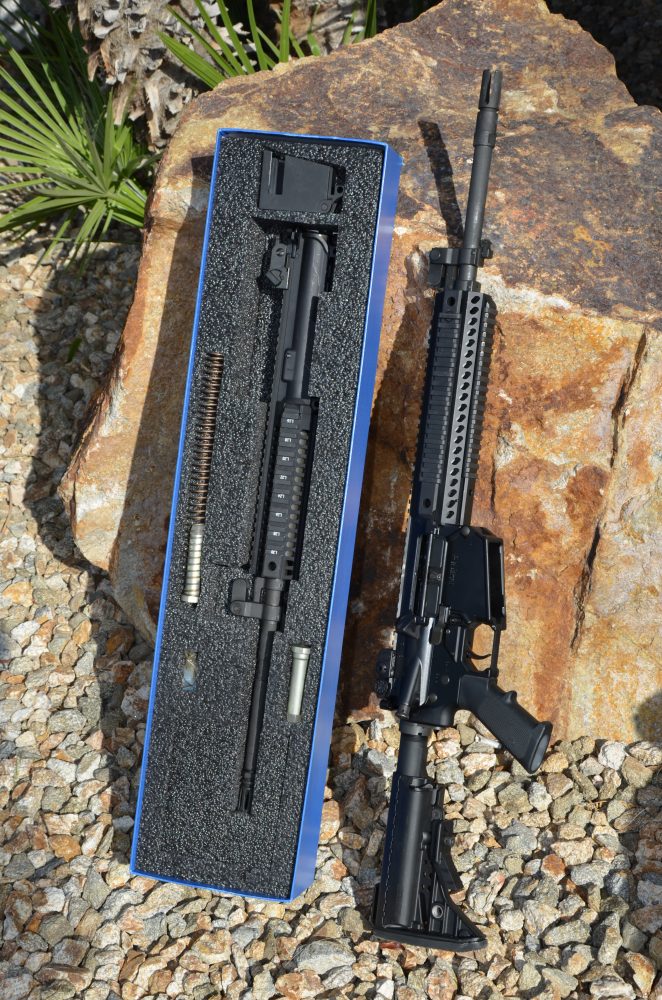
SHOTS FIRED
Test day was slightly overcast with a five mph wind from 12 o’clock. Karl decided to start with accuracy testing before the wind picked up. The Black Hills Match shot well, as always. A couple of the guns did very well, and a couple were disappointing (see table).
After accuracy, to test reliability, each shooter fired 60 rounds through one of the guns, using each of the three ball rounds, then fired the other test guns. Round counts, impressions, and malfunctions were noted. Each shooter was then asked to pick a different gun and run a mag or two through it, totaling 1,000 rounds of ball and 240 match rounds fired.
For a final subjective test, I turned to Chuck Collingwood. Chuck is an honest-to-God, no kidding, real-life Tier One operator: 82nd Airborne in Vietnam in 1968, then SF, the Golden Knights, and a Delta troop, followed by a career as a police officer and SWAT sniper.
I asked this real-world shooter to find out which gun handled the best—ergonomics, portability, speed on target, and combat accuracy. Which gun would he take for a “grab and go” fighting rifle? Chuck liked the Colt a lot, with its ambi controls and dual caliber, but the LMT would be his first choice.
There it is. None of the test guns shot as well as my LaRue OBR, but it’s apples and oranges—my OBR is a pain to hump. You determine what you want the gun to do.
If you’re a sub-MOA Nazi, pick the most accurate, but remember that a 2.0 MOA gun is still a ten-inch group at 500 yards. If you can handle the “Minute of Man” problem, any of the rifles evaluated will do. If you’re old and frail like me, pick the lightest. If you wanna be cool, paint it in Rhodesian camo.
However, if you want an acceptable balance of it all, use our findings as a guide and make an informed choice. I made my personal pick, but you make yours. Buy it, buy mags and ammo, and get some good training.
WTSHTF a .308 battle rifle may come in handy.
SOURCES:
ArmaLite
(800) 336-0184
www.armalite.com
Black Hills Ammunition
(605) 348-5150
www.black-hills.com
Colt Defense
(800) 241-2485
www.coltdefense.com
Knight’s Armament Company
(321) 607-9900
www.knightarmco.com
Lewis Machine & Tool Company, Inc.
(309) 787-7151
www.lmtdefense.com
Magpul Industries Corp.
(877) 462-4785
www.magpul.com
POF USA
(623) 561-9572
www.pof-usa.com
Rock River Arms
(866) 980-7625
www.rockriverarms.com
The Range 702
(705) 485-3232
www.therange702.com
Troy Industries
(866) 788-6412
www.troyind.com
